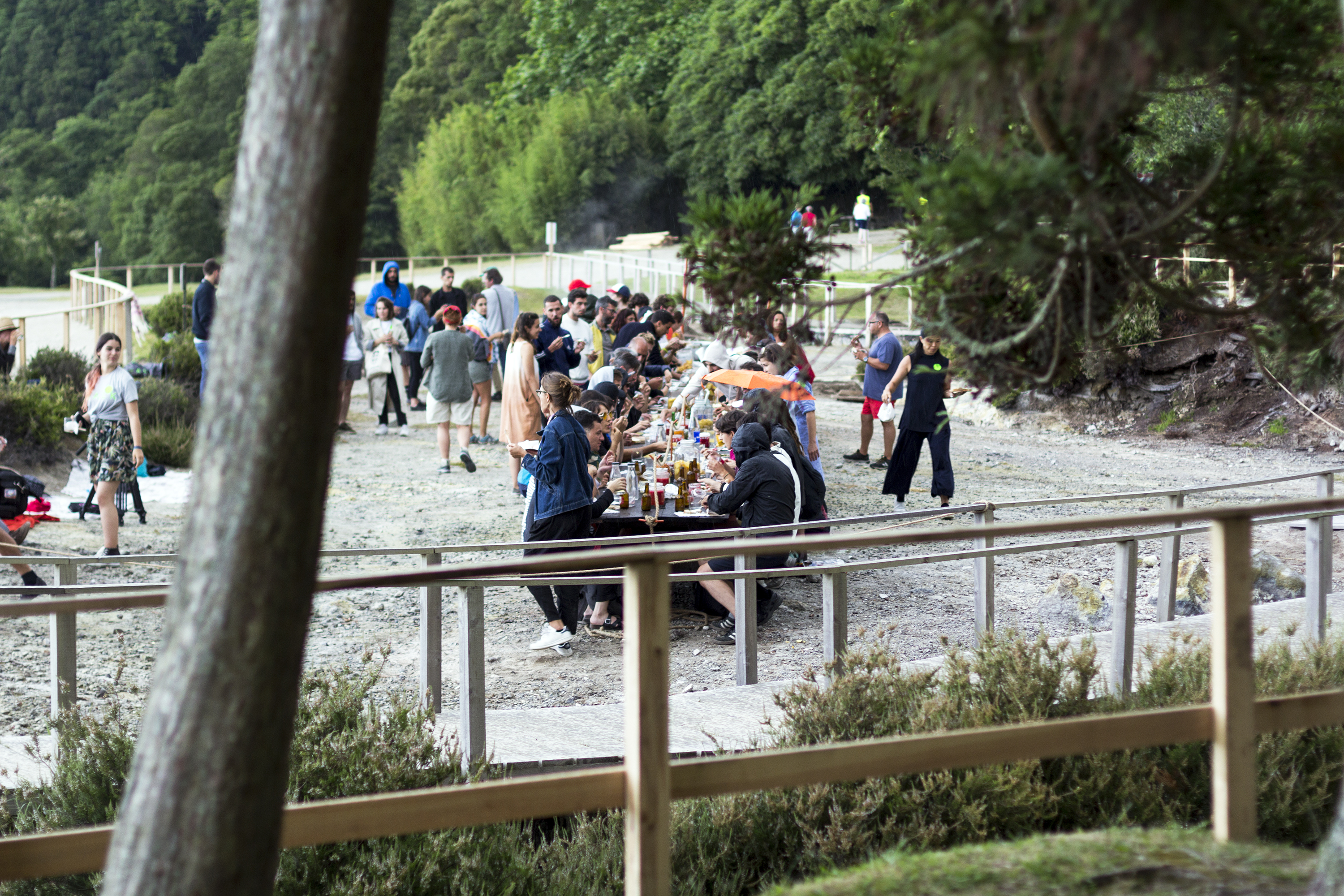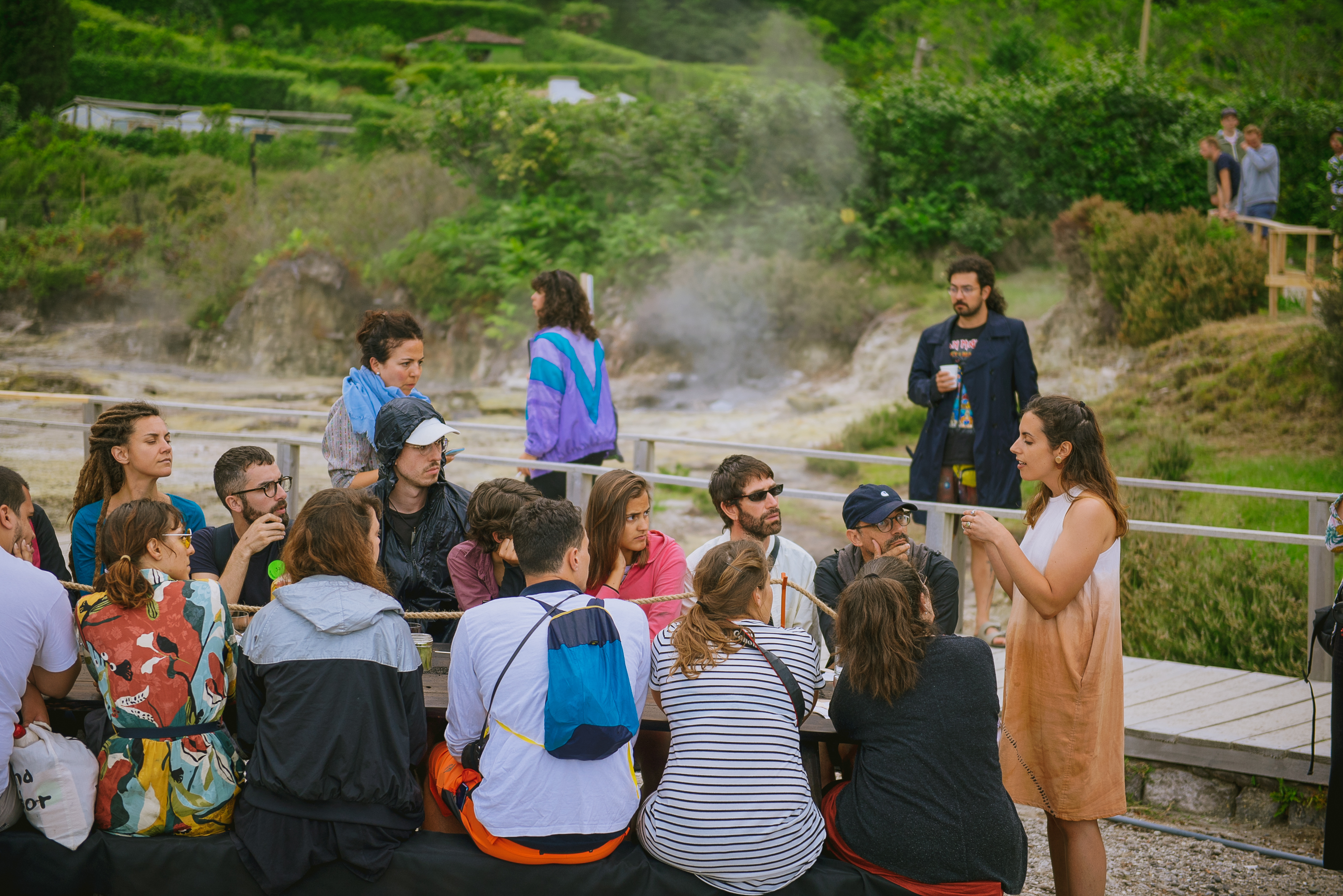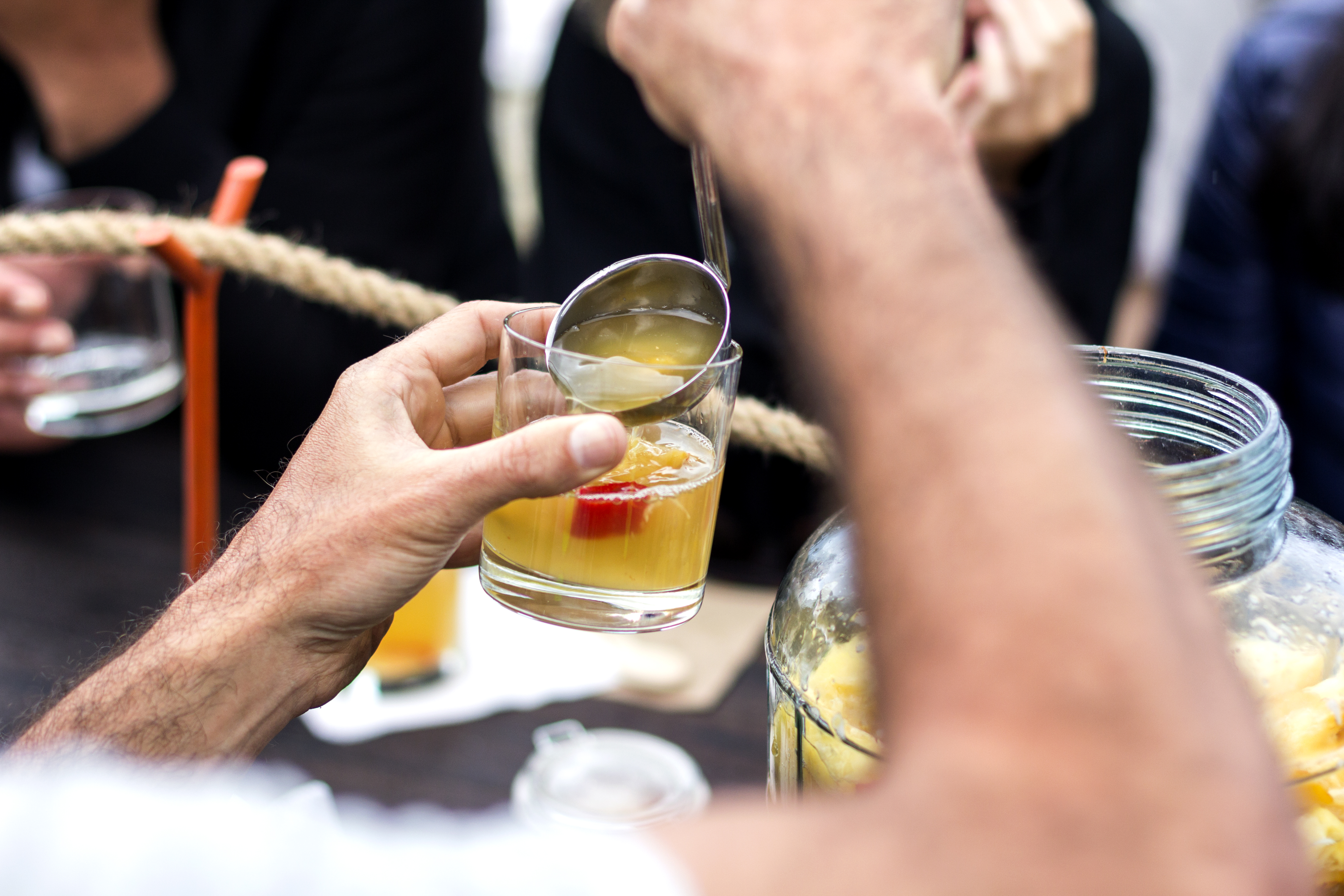part of Expedition Empathy, curated by The Decorators
Walk&Talk festival, Azores 2019
Placing what surrounds us into the inside of us is the premise at the beginning of this project, following Inês Neto dos Santos’ on-going work with fermentation (transformation of food by bacteria, yeasts and moulds). Her interest lies on the exchange of information between food and its surrounding environment, a time-based process that may be influenced by elements such as temperature, humidity, atmospheric pressure and even contiguous fauna and flora. For her, fermentation works as a site-specific archive of hyperlocal information, a unique map of space-time points that rely on a constant and symbiotic microbial relationship linking humans and nature.
Starting with a performative walk around the island, carrying her sourdough starter to introduce it to the land, she will explore the ways in which ferments connect us to our environment using food as means of perception. Based on local food culture and knowledge, Inês will collect ingredients, recipes and stories, weaving them into a new narrative which speculates on the role of ferments as archives of not only microbial life, but as records of place, time and emotional experience. Could we taste these on our palate?
During her time in Azores, Inês researched local traditions and learned particularly about a technique of cooking underground, using the heat from the volcanic lands, which applied daily on the island of São Miguel to cook ‘cozido’. Bringing with her a recipe for ‘volcanic’ rye bread, traditionally cooked in Iceland using geothermal heat, Inês adapted it to the local landscape and presented it during the Expedition led by The Decorators, alongside an array of local foods that had undergone natural processes of fermentation, drying, curing and aging.
The work was installed and presented on a specially designed table by The Decorators, called Mesa-Buraco. The table, stretching 20m in length, featured a hole at one end, which was placed exactly on top of a cooking hole in Furnas, where ‘cozido’ is made everyday. The table included a pulley system, which seated guests used to collectively pull three pots from underground, to reveal a soft, springy rye bread cooking in the heat from the Earth for seve hours.
Photos by Mariana Lopes and Sara Pinheiro.










